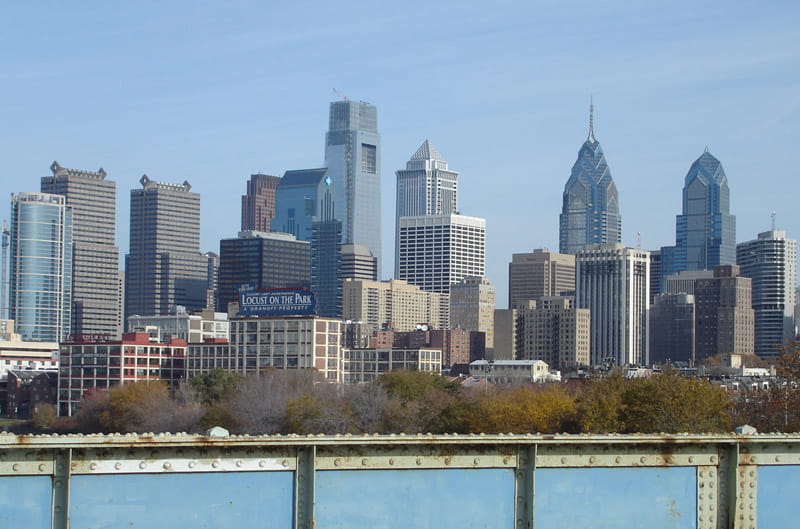Drexel and Penn Join White House Smart Cities Initiative

Through the MetroLab Network, Drexel and Penn will continue to work with the City of Philadelphia to come up with solutions for common urban problems like traffic congestion, dealing with a changing climate, fighting crime and fostering economic growth.
Experts from Drexel University and The University of Pennsylvania’s Institute for Urban Research will join others from cities around the country as participants in a White House initiative to make universities and their host municipalities partners in using technology to solve the challenges that face our nation’s growing urban areas.
The White House’s Smart Cities Forum named Drexel and Penn two of the 25 founding partners in the $160 million initiative called the MetroLab Network. The Network will support shared research and collective problem solving among universities and their home cities. Penn and Drexel join universities in 20 cities and counties who will work together to tackle challenges such as reducing traffic congestion, fighting crime, fostering economic growth, managing the effects of a changing climate and improving the delivery of city services.
“Drexel University has had a long history of working with agencies of the City of Philadelphia to apply knowledge and skills to help contribute to solutions to challenges that face the City,” said Charles Haas, PhD, LD Betz Professor of Environmental Engineering in Drexel’s College of Engineering and head of its Department of Civil, Environmental and Architectural Engineering. “We look forward to deepening the relationship, to working with our colleagues at the University of Pennsylvania and the national network being created to deepen and strengthen the contributions we can make towards the challenges that face cities.”
Conceptually, the MetroLab Network is based on previous successes of technologies developed from established city/university partnerships. These partnerships have produced innovative transportation and water infrastructure projects that have increased the efficiency and reduced the environmental impact of infrastructure systems.
Drexel has partnered with a number of the City of Philadelphia’s administrative departments over the years, including a standing relationship between the College of Engineering and the Philadelphia Water Department to understand how to improve its protection of drinking water and watersheds. Drexel engineering students have also worked with the Philadelphia Streets Department to develop innovative alternatives for rehabilitation of roads, bridges and overpasses. Participation in the MetroLab Network will formalize a continued relationship that will generate an active set of research, development and deployment projects.
The John D. and Catherine T. MacArthur Foundation has generously provided $1M in support of the launch of the MetroLab Network. MacArthur’s grant is one of a small number of investments by the Foundation in efforts to use data and information technologies to better understand how cities work and to improve the urban condition.
“The Metro Lab Network will catalyze research, development, and demonstration projects that will benefit urban residents, environments, and communities,” said McArthur Foundation Program Officer Alaina Harkness. “Working together, the Network partners will pool knowledge, share resources and boost their collective ability to make cities work better.”
The first actions this newly formed network will undertake include organizing a series of workshops between founding members to determine the parameters of Network collaboration and appointing an executive director to manage the affairs of the Network.
More information on the MetroLab Network and its founding partners can be found at metrolabnetwork.org.